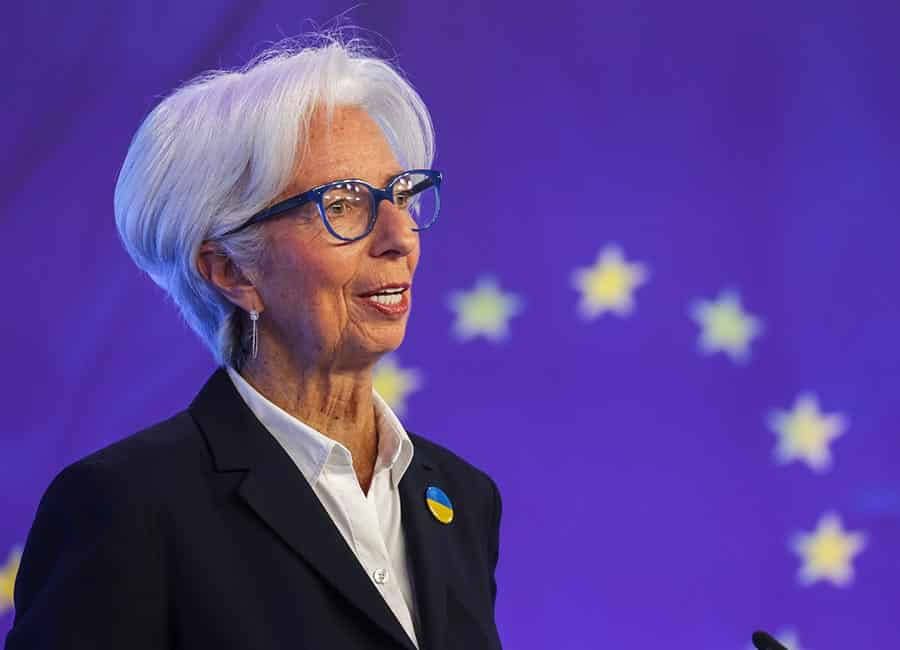Modified Domestic Demand – a proxy for domestic economy – contracted by 1.0% in the first quarter of 2022, according to National Accounts data from the Central Statistics Office.
Consumer spending decreased by -0.7% in the first quarter.
However, the GDP economic measure grew by 10.8% compared with Q4 2021 due to strong exports by multinationals operating in Ireland.
Minister for Finance Paschal Donohoe (pictured) commented: “While GDP growth was exceptionally strong in the first quarter, part of this is a ‘washing-out’ of some of the one-off factors that led to the unusual negative quarter at the end of last year.
“It is important also to put these volatile figures into context. GDP is not an accurate measure of what is going on in the domestic economy, given the size of the multinational sector.
"Today’s figures confirm a weak first quarter for the domestic economy as a result of numerous headwinds at the start of the year, including the Omicron-wave, inflationary pressures and the increased uncertainty related to the war in Ukraine.
"Modified domestic demand, our preferred measure of economic activity, decreased by -1.0% in the first quarter.
"Consumer spending decreased by -0.7% as rising prices, in particular for energy products, impacted consumer purchasing power. While business investment was also weak in Q1, it is encouraging to see investment in new housing continuing to grow, with the level of housing supply up by almost half compared to same quarter last year.”
The minister stated that the economic numbers should be considered alongside strong Q1 jobs numbers, with the unemployment rate of 4.7% in May the lowest since 2006.
Minister Donohoe added: “The war and the subsequent waves of economic and financial sanctions represents a large ‘supply-side’ shock to the global economy. As a result, inflationary pressures have risen sharply, with the annual rate of inflation in May estimated at a multi-decade high of 8.2% on the back of sharp increases in energy prices.
"The government has responded to help to ease the impact of these price pressures, with €2.4 billion in cost-of-living measures announced to date.
“However the causes of current price pressures are not within our control, and we cannot cushion households and businesses from the entire impact of the current shock.
"The broad economic and fiscal parameters for Budget 2023 will be presented in the Summer Economic Statement. In calibrating how we respond to the current challenges, it is important that we strike the right balance and ensure policy doesn’t inadvertently add further inflationary pressures into the system.”
Through Q1 2022, the multinational enterprise (MNE) dominated Industry sector (excluding Construction) recorded strong growth in Q1 compared with the previous quarter, an increase of 15.0%.
The domestically dominated Distribution, Transport, Hotels & Restaurants sector increased by 11.9% quarter-over-quarter following the further easing of Covid restrictions.
The Professional & Administrative Services sector rose by 6.3% quarter-on-quarter while Finance & Insurance increased by 6.0% over the period compared with Q4 2021.
The Information & Communication sector, also dominated by MNEs, grew by 4.3% over the same period, with the Agriculture sector exhibiting an increase of 5.5%.
Quarter-on-quarter increases were also recorded in Arts & Entertainment (3.5%) and Real Estate (2.4%). The Construction sector declined by 3.7% in Q1 2022 while Public Administration, Education & Health fell by 1.6%.
On the expenditure side of the National Accounts, Exports increased by 5.2% in Q1 2022 compared with Q4 2021, while Imports declined by 12.3%.
This meant that overall net exports for the quarter were 72.6% higher in Q1 compared with Q4 2021 or €22.4 billion higher in money terms quarter-on-quarter.
Capital Investment fell by €8.7 billion during the quarter, with the Capital Formation element decreasing by 39.5%.
Personal Consumption Expenditure declined modestly by 0.7% quarter-on-quarter.
These impacts when combined resulted in an overall increase in the real GDP growth rate in Q1 2022 of 10.8%, the CSO explained.
Final Domestic Demand decreased by 19.0% in Q1 compared with Q4 while Modified Domestic Demand fell by 1.0% over the same period.











